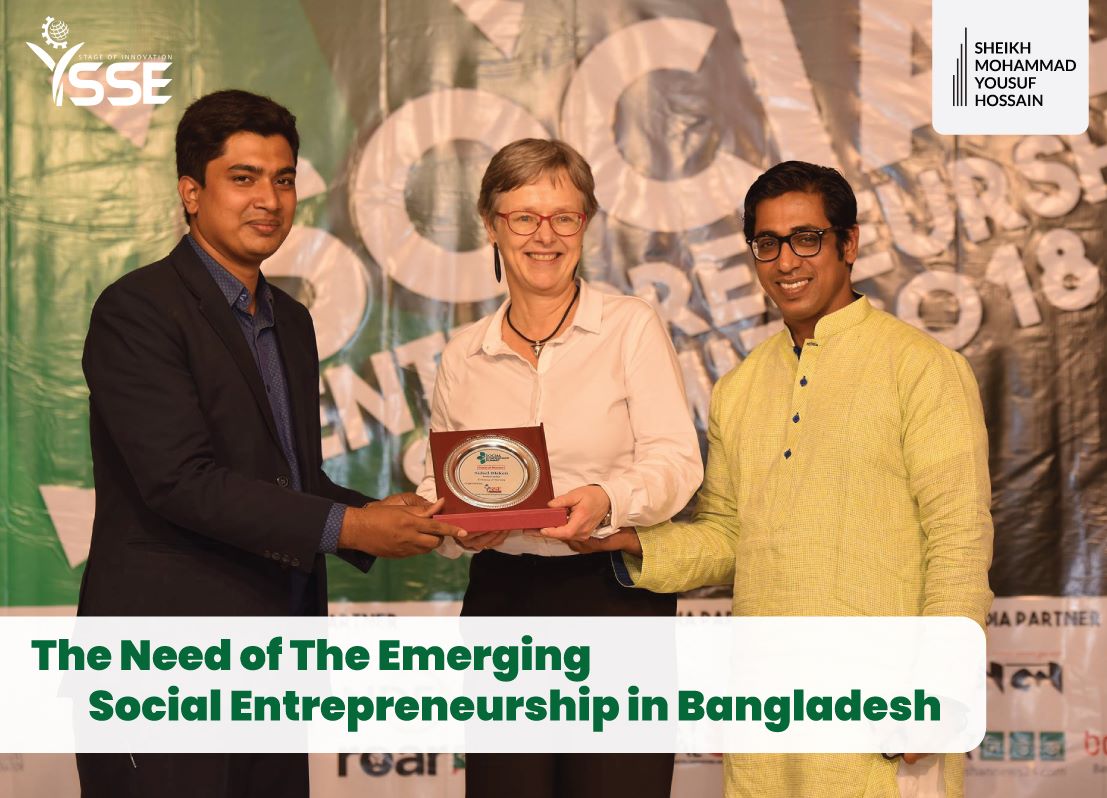
The Need of The Emerging Social Entrepreneurship in Bangladesh
For the last few decades, entrepreneurs are regarded as the most value-adding people to the society in all over the world. These people are considered as value-adding persons because as a result of their own initiatives, jobs are created in the society, capital formation is promoted, country’s export trade is increased, the concentration of economic power is reduced, balanced regional development becomes possible, forward and backward linkages among the industries are created and equitable redistribution of wealth, income and even political power is ensured.
The increasing concentration of wealth in the private sector is promoting calls for increased corporate social responsibility and more proactive responses to complex social problems. That is why, the issue of entrepreneurship, long hallowed in the context of business and economic ventures, has been increasingly applied to the context of social problem-solving. In light of this, social entrepreneurship is emerging as an innovative approach for dealing with complex social needs.
The term social entrepreneurship is used to refer to the rapidly growing number of organizations that have created models for efficiently catering to basic human needs that existing markets and institutions have failed to satisfy. Entrepreneurs are highly innovative, hugely motivated, and critical thinkers. When these traits are united with the drive to get to the bottom of social problems, social entrepreneurs are born. social entrepreneurs are leaders in the field of social change and can be found in the private, public, and not-for-profit sectors and these social innovators combine an entrepreneurial spirit with a concern for the ‘social’ bottom line, as well as the economic one, recognizing that strong, vibrant communities are a critical factor in sustaining economic growth and development. SEs have a commitment to promote a social mission and improve society.
The problems that affect Bangladesh are disparate and complex. While the country is witnessing steady economic advancement averaging 6% annual GDP growth, the country still faces challenges borne from poverty, climate change, and unemployment. Existing methods of addressing these obstacles through traditional methods such as government initiatives, foreign aid programs, and NGOs have not been sufficient to combat these challenges on their own. Though both international organizations, UN programs, and local NGOs have made significant progress such as reducing extreme poverty, increasing access to education, and building climate change resilience, their long-term sustainability is uncertain, as they are dependent on foreign aid and external funding for their survival.
As an alternative, entrepreneurs, innovators, and changemakers are looking to adopt social entrepreneurship as a new approach to tackle social problems while also securing financial sustainability. Social enterprise is a growing sector in Bangladesh; it is making a significant impact in the country evidenced by the successes of two of the world’s largest social enterprises, BRAC and Grameen. Through varied initiatives, social enterprises are creating jobs, empowering women, and creating services that are more inclusive across the country.
A study by the British Council shows that the nascent social enterprise movement in Bangladesh is led by young people, with many of the leaders aged below 35. The research also found that 90% of social enterprises are working with socially and economically disadvantaged communities and that, women lead a fifth of Bangladeshi social enterprises.

